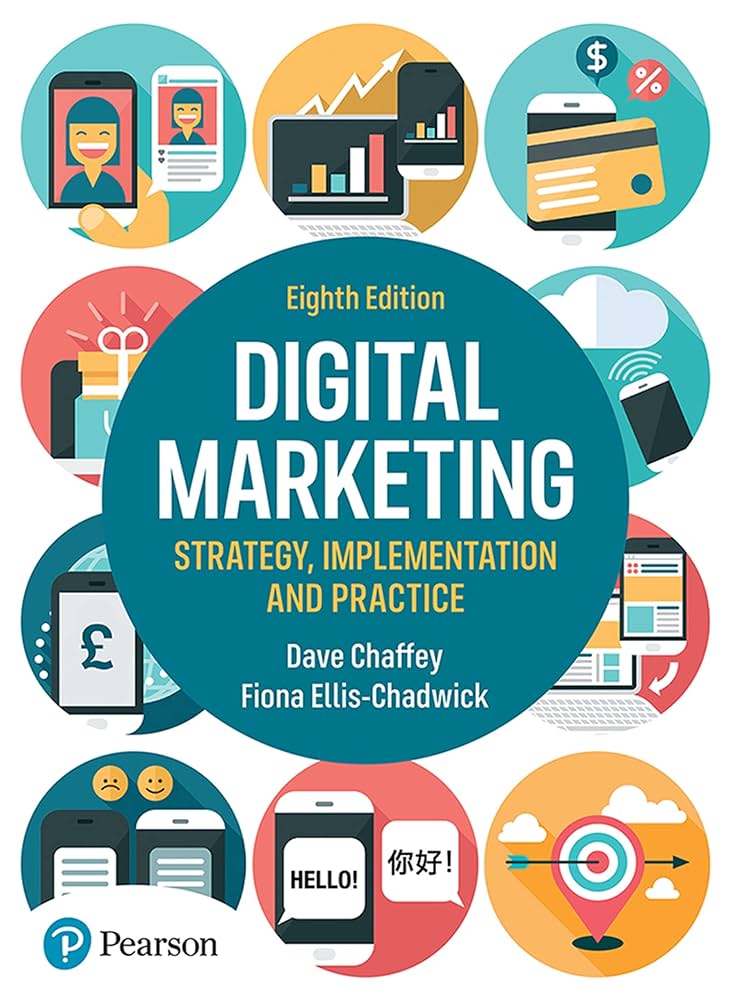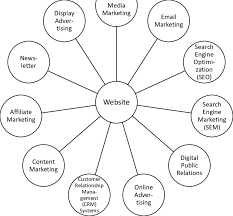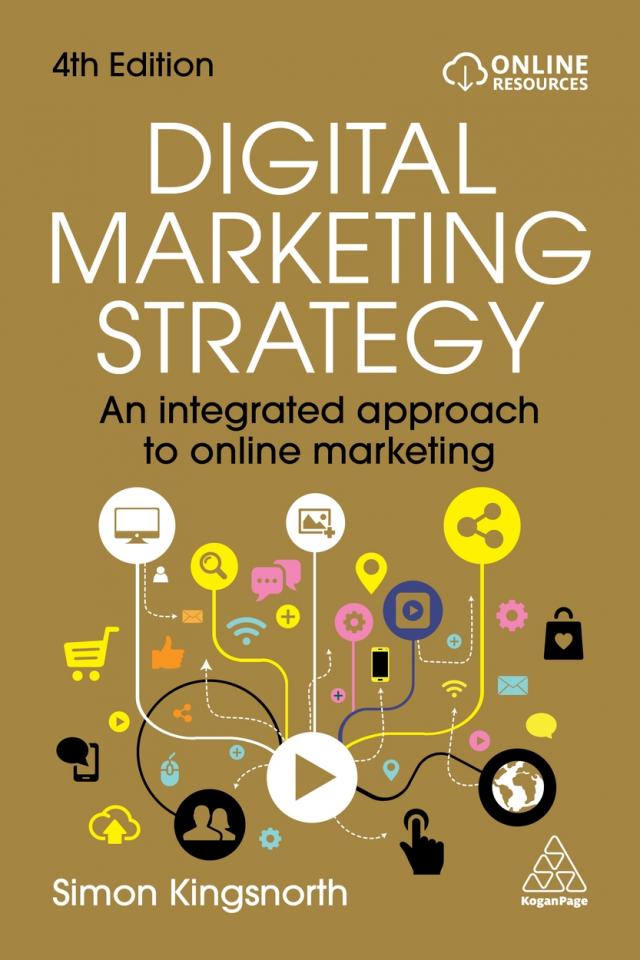Digital Marketing Trends in 2022
As we move further into the digital age, the landscape of marketing continues to evolve at a rapid pace. In 2022, digital marketing is more dynamic and essential than ever, with businesses striving to connect with their audiences in innovative ways. Here are some key trends that are shaping digital marketing this year.
The Rise of Artificial Intelligence
Artificial Intelligence (AI) is no longer a futuristic concept; it is now an integral part of digital marketing strategies. AI technology helps marketers analyse data more efficiently, personalise customer experiences, and automate repetitive tasks. Chatbots powered by AI are becoming increasingly popular for providing customer support and enhancing user engagement.
Video Content Dominance
Video content continues to dominate the digital space in 2022. Platforms like TikTok, Instagram Reels, and YouTube Shorts have made short-form video content particularly popular. Brands are leveraging these platforms to create engaging and shareable content that resonates with their audience. Live streaming is also gaining traction as it offers real-time interaction with viewers.
Emphasis on Privacy and Data Protection
With growing concerns over privacy and data protection, businesses must prioritise transparent practices regarding data collection and usage. The introduction of regulations such as GDPR has made consumers more aware of their rights. In 2022, building trust through ethical data handling is crucial for maintaining customer relationships.
Sustainability and Social Responsibility
Consumers today expect brands to take a stand on social issues and demonstrate a commitment to sustainability. Digital marketing strategies in 2022 are increasingly focusing on promoting brand values related to environmental responsibility and social justice. Authenticity in messaging is key, as consumers can easily discern between genuine efforts and superficial gestures.
The Power of Influencer Marketing
Influencer marketing remains a powerful tool for reaching niche audiences effectively. In 2022, micro-influencers—those with smaller but highly engaged followings—are gaining popularity due to their perceived authenticity and closer connections with their audience. Brands are collaborating with influencers who align closely with their values for more impactful campaigns.
The Integration of Augmented Reality (AR)
Augmented Reality (AR) offers exciting possibilities for enhancing customer experiences online. From virtual try-ons in fashion retail to interactive advertisements, AR technology allows brands to engage customers in immersive ways that were previously unimaginable.
Conclusion
The digital marketing landscape in 2022 is characterised by rapid technological advancements and changing consumer expectations. Businesses must stay agile and adaptable to leverage new opportunities effectively while maintaining a focus on ethical practices and authentic engagement with their audiences.
Top 9 Frequently Asked Questions About Digital Marketing in 2022
- What is digital marketing and why is it important in 2022?
- How can businesses benefit from social media marketing in 2022?
- What are the key trends shaping email marketing strategies in 2022?
- How does search engine optimisation (SEO) impact digital marketing efforts in 2022?
- What role does content marketing play in a successful digital strategy for businesses this year?
- How can businesses measure the success of their digital marketing campaigns in 2022?
- What are the best practices for implementing a successful pay-per-click (PPC) advertising campaign in 2022?
- How important is mobile marketing for businesses looking to reach their target audience in 2022?
- What ethical considerations should businesses keep in mind when engaging in influencer marketing activities this year?
What is digital marketing and why is it important in 2022?
Digital marketing encompasses a range of online strategies and tactics used by businesses to promote their products or services to a wider audience. In 2022, digital marketing plays a crucial role in helping businesses stay competitive and relevant in the ever-evolving digital landscape. With the increasing reliance on digital platforms for communication, shopping, and entertainment, having a strong online presence is essential for reaching and engaging with target customers. Digital marketing allows businesses to connect with their audience in real-time, personalise their messaging, track performance metrics accurately, and adapt quickly to changing trends—all of which are vital for driving growth and building brand loyalty in 2022.
How can businesses benefit from social media marketing in 2022?
In 2022, businesses can reap numerous benefits from social media marketing. Firstly, social media platforms provide unparalleled access to a vast audience, allowing businesses to reach and engage with potential customers on a global scale. By leveraging the power of social media analytics and targeting tools, businesses can gain valuable insights into consumer behaviour and preferences, enabling them to tailor their marketing strategies for maximum impact. Moreover, social media facilitates direct communication with customers, fostering brand loyalty and trust through personalised interactions. In an increasingly competitive digital landscape, businesses that harness the potential of social media marketing in 2022 stand to enhance brand visibility, drive website traffic, and ultimately boost sales and revenue.
What are the key trends shaping email marketing strategies in 2022?
In 2022, the key trends shaping email marketing strategies revolve around personalisation, interactivity, and automation. Personalisation is paramount as brands seek to deliver tailored content that resonates with individual recipients. Interactive elements such as dynamic content, gamification, and surveys are being integrated into emails to enhance engagement and drive conversions. Automation plays a significant role in streamlining workflows, from segmenting audiences based on behaviour to sending targeted messages at optimal times. As email marketing continues to evolve, incorporating these trends can help businesses create more impactful campaigns and foster stronger connections with their subscribers.
How does search engine optimisation (SEO) impact digital marketing efforts in 2022?
In 2022, search engine optimisation (SEO) continues to play a crucial role in digital marketing efforts by significantly influencing a brand’s online visibility and organic traffic. With search engines constantly evolving their algorithms to deliver more relevant and user-friendly results, a robust SEO strategy is essential for businesses to rank higher in search engine results pages (SERPs) and attract quality traffic. By optimising website content, improving site structure, and implementing relevant keywords, businesses can enhance their online presence, increase brand awareness, and drive targeted traffic to their websites, ultimately leading to improved conversion rates and long-term success in the competitive digital landscape of 2022.
What role does content marketing play in a successful digital strategy for businesses this year?
Content marketing plays a pivotal role in shaping a successful digital strategy for businesses in 2022. In a landscape where consumers are inundated with information, high-quality and relevant content serves as a valuable tool for attracting and engaging audiences. Content marketing not only helps businesses establish thought leadership and credibility but also drives organic traffic to their digital platforms. By creating compelling content that resonates with their target audience, businesses can foster trust, build brand loyalty, and ultimately drive conversions. In the dynamic realm of digital marketing this year, an effective content strategy is essential for businesses looking to stand out amidst the noise and connect authentically with their customers.
How can businesses measure the success of their digital marketing campaigns in 2022?
In 2022, businesses can measure the success of their digital marketing campaigns through a combination of quantitative and qualitative metrics. Key performance indicators (KPIs) such as website traffic, conversion rates, click-through rates, and return on investment (ROI) provide valuable insights into the effectiveness of campaigns. Additionally, tracking engagement metrics on social media platforms, email open rates, and customer feedback can help businesses understand audience sentiment and preferences. Utilising advanced analytics tools and attribution models allows for a comprehensive evaluation of campaign performance across various channels. By aligning measurement strategies with specific campaign objectives and continuously refining tactics based on data-driven insights, businesses can optimise their digital marketing efforts for success in 2022.
What are the best practices for implementing a successful pay-per-click (PPC) advertising campaign in 2022?
In 2022, implementing a successful pay-per-click (PPC) advertising campaign requires a strategic approach and adherence to best practices. To maximise the effectiveness of your PPC campaign, it is essential to conduct thorough keyword research to target relevant and high-converting search terms. Crafting compelling ad copy that entices users to click is crucial, along with creating landing pages that provide a seamless user experience and encourage conversions. Regular monitoring and optimisation of your PPC campaigns based on performance data are key to achieving success in 2022. Additionally, leveraging ad extensions, audience targeting, and ad scheduling can further enhance the performance of your PPC advertising efforts.
How important is mobile marketing for businesses looking to reach their target audience in 2022?
In 2022, mobile marketing is more crucial than ever for businesses aiming to connect with their target audience effectively. With the increasing reliance on smartphones and mobile devices for accessing information and making purchasing decisions, businesses must prioritise mobile-friendly strategies to reach consumers where they are most active. Mobile marketing allows businesses to deliver personalised, location-based content, leverage mobile apps for enhanced user experiences, and engage with audiences in real-time through push notifications and messaging platforms. Ignoring the significance of mobile marketing in 2022 could result in missed opportunities to engage with a substantial portion of the target audience and stay competitive in the digital landscape.
What ethical considerations should businesses keep in mind when engaging in influencer marketing activities this year?
In 2022, businesses engaging in influencer marketing activities must be mindful of several ethical considerations to maintain trust and credibility with their audience. Firstly, transparency is paramount, and businesses should ensure that influencers disclose any sponsored content clearly and prominently to avoid misleading consumers. Authenticity is another key factor, as brands should collaborate with influencers whose values align with their own to maintain integrity in their partnerships. Moreover, businesses need to be cautious of false advertising or deceptive practices by influencers and must conduct due diligence before entering into partnerships to uphold ethical standards in influencer marketing this year.





